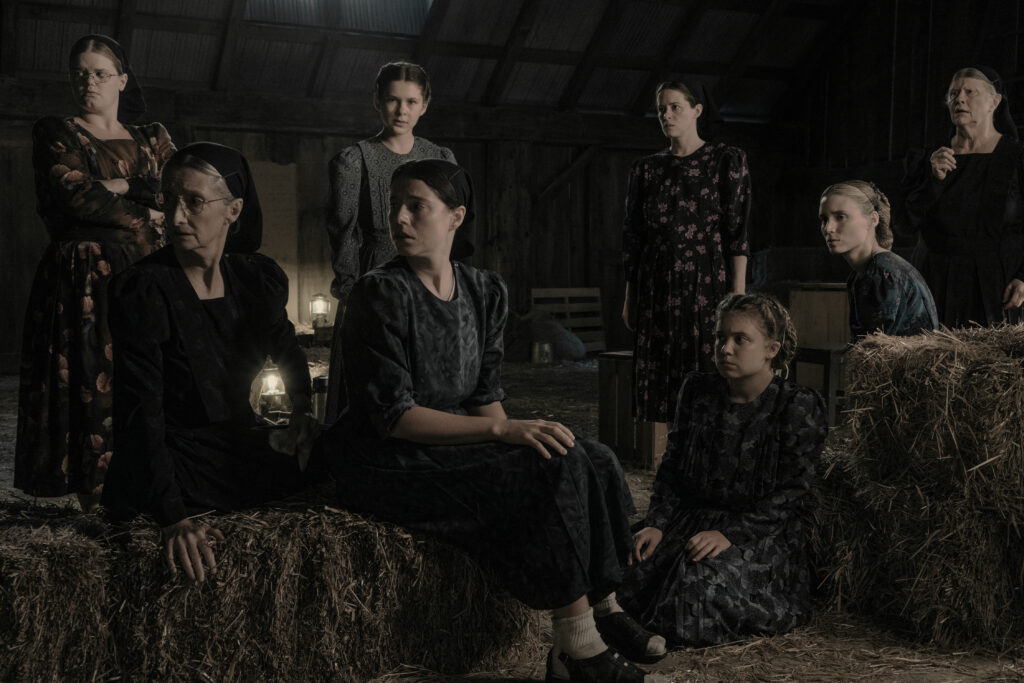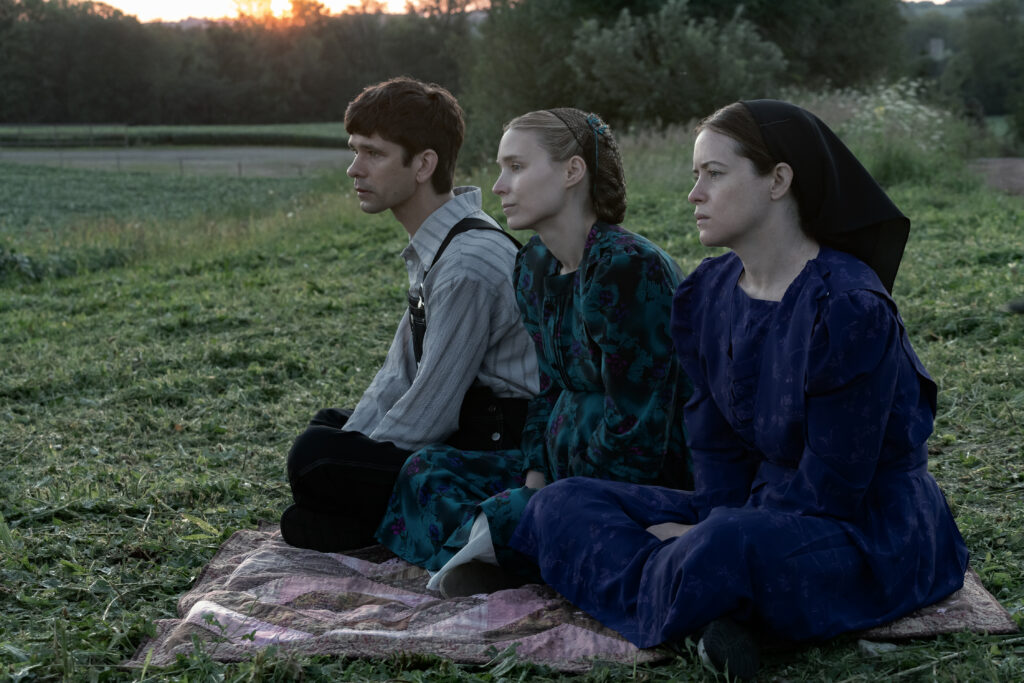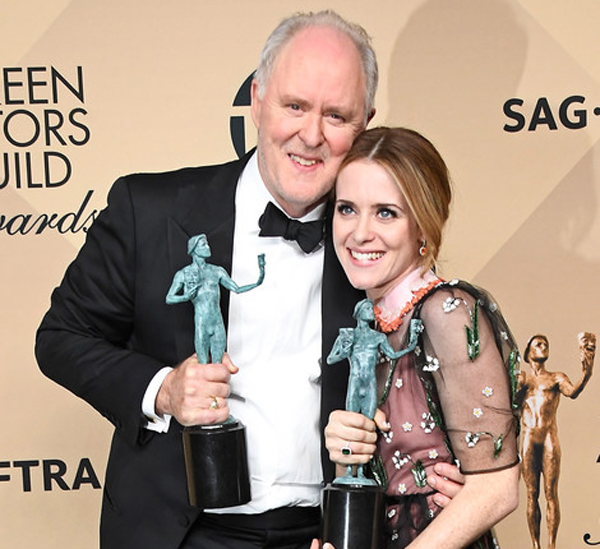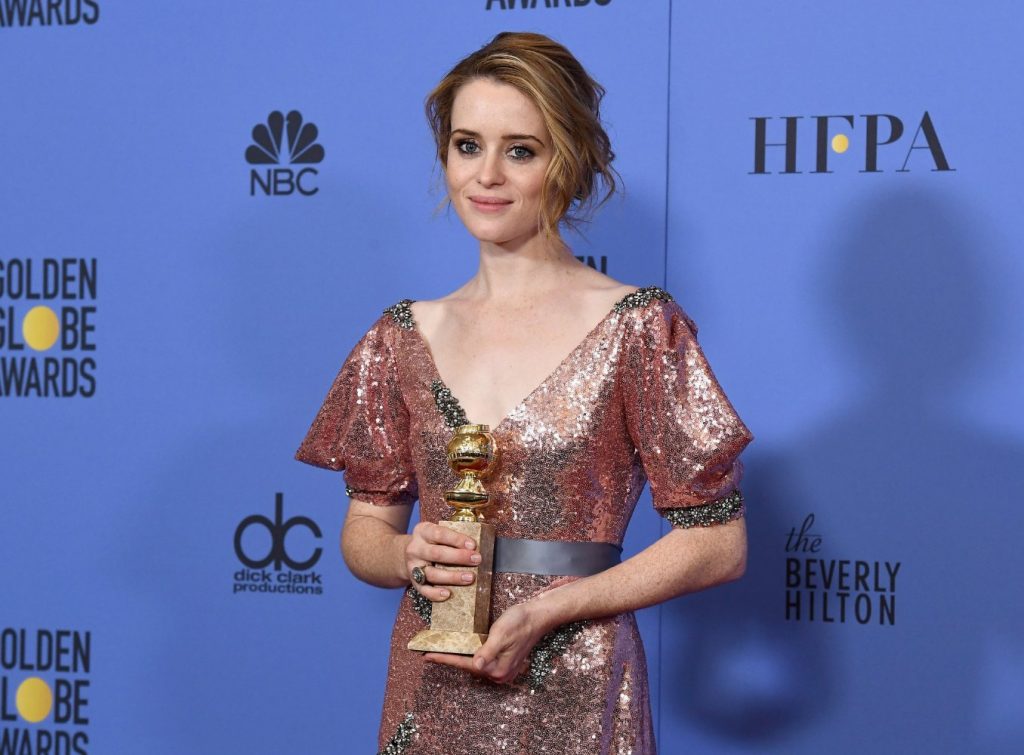September 29, 2023
by Carla Hay
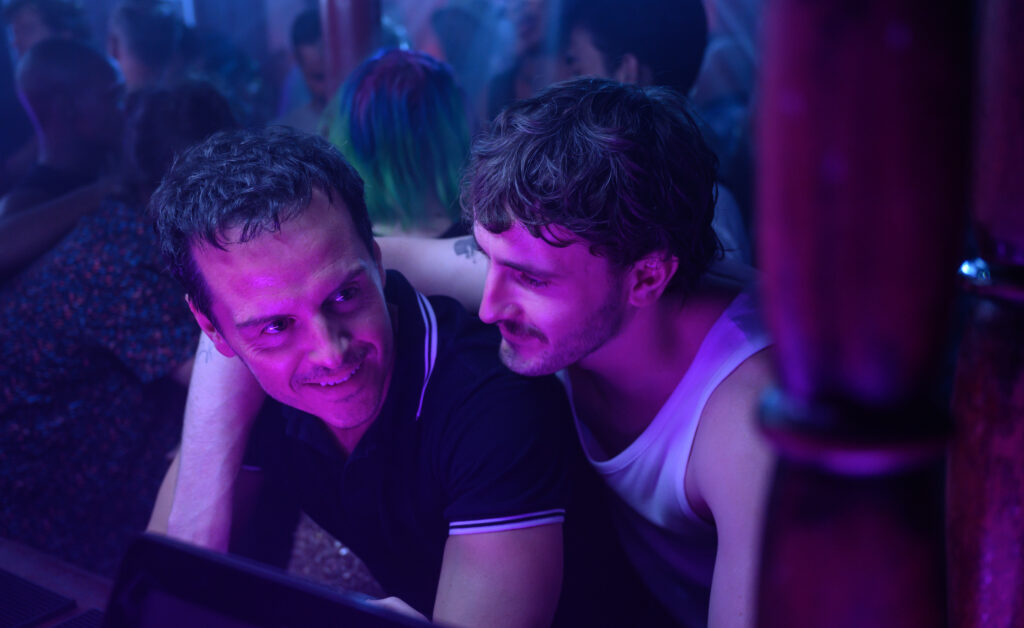
Directed by Andrew Haigh
Culture Representation: Taking place in England, in 2017, the sci-fi drama film “All of Us Strangers” (based on the novel “Strangers”) features an all-white cast of characters representing the working-class and middle-class.
Culture Clash: A man, who was orphaned at the age of 11 when his parents died in a car accident, goes back to his childhood home to visit the ghosts of his parents, around the same time that he begins dating another man who lives in the same apartment building.
Culture Audience: “All of Us Strangers” will appeal primarily to people who are fans of the movie’s headliners; the novel on which the movie is based; and uniquely told love stories.
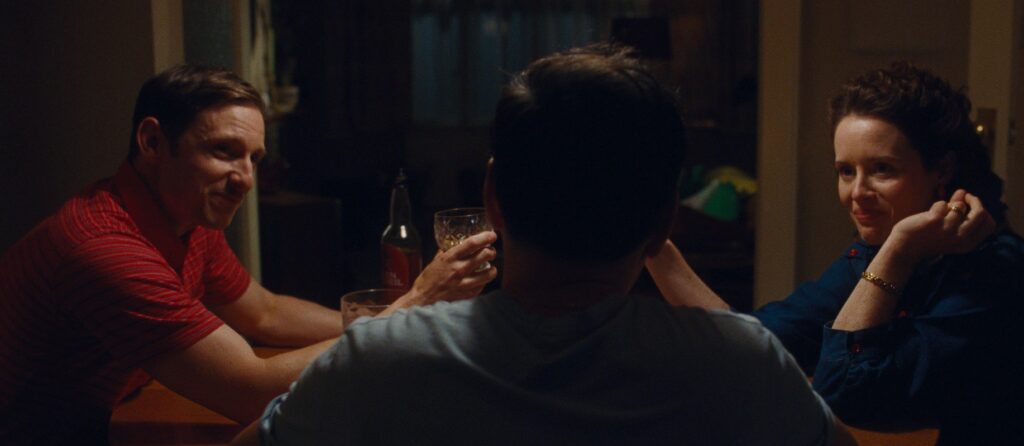
“All of Us Strangers” is literally a haunting meditation on grief over the death of loved ones. This well-acted drama might be too slow-paced for some viewers, but the movie’s themes and performances are worth watching. Some of it gets repetitive though.
Written and directed by Andrew Haigh, “All of Us Strangers” is based on Taichi Yamada’s 1987 novel of the same name. The movie’s present-day scenes takes place in 2017, but there are also some flashbacks taking place in 1987. It’s a moody and mysterious film that unpeels in layers until its emotionally powerful conclusion. “All of Us Strangers” had its world premiere at the 2023 Telluride Film Festival before showing at the 2023 New York Film Festival and the 2023 BFI London Film Festival.
In the present-day scenes, an openly gay screenwriter in his early 40s named Adam (played by Andrew Scott) is living by himself in a sleek high-rise apartment complex in London. Viewers will eventually notice that no one else seems to live in the building except Adam and a neighbor named Harry (played by Paul Mescal), another gay or queer bachelor who lives by himself. Harry, who is about 15 years younger than Adam, makes the first flirtatious move when introducing himself to Adam.
This apartment building could have previously been a hotel, because it has a common hotel feature of windows that can’t open, in order to prevent people from jumping or falling out of the windows. “How do you cope?” Harry asks Adam about the isolation of living in the building. As time goes on, viewers will see that the building is a symbol of being in emotional confinement.
At first, introverted Adam is polite but aloof with Harry. Adam has his guard up and doesn’t seem too interested in getting to know Harry better. But then, when Harry shows up at Adam’s door one day, Harry persuades Adam to let him into the apartment. Harry shows signs that he’s interested in Adam sexually and then comes right out and asks Adam if Adam is queer. The answer is yes.
Adam seems hesitant about starting a sexual relationship with Harry, who is more confident and forthight about what he wants. During their first date, which is at Adam’s apartment, Harry and Adam smoke some marijuana together. And once again, Harry makes the first move, and they become lovers. That’s only part of the story.
Adam has a secret: He has been taking train trips to the suburbs to go back to his childhood home to visit the ghosts of his dead parents (played by Jamie Bell and Claire Foy), who passed away in a car accident in 1987, when Adam was 11 years old. (This is not spoiler information, since it’s a big part of the movie.) Adam’s parents have the same physical appearance of how they looked in the year that they died, except his parents know that they are dead and are seeing the adult Adam, who has no siblings.
Much of “All of Us Strangers” is about Adam juggling his present-day life and escaping back to his past at his childhood home, where he wants to hold on to the memories of his parents and communicate with them, even if he knows that they are dead. Viewers must ponder if Adam has psychic abilities, or if he’s mentally ill and is imagining it all. As the romance between Adam and Harry heats up and they become closer, Adam has to decide if he will tell Harry his secret or not.
“All of Us Strangers” is the type of movie that is more about emotions than about a step-by-step plot. Through conversations that Adam has with his parents and Harry, viewers find out that Adam was a loner when he was a kid. He was bullied as a child for being effeminate. His bullies were other schoolkids who suspected that Adam was gay.
Adam’s parents, especially his father, are not hatefully homophobic, but they don’t quite know how to handle having a gay son when adult Adam comes out as gay to them. (Adam tells his mother first, and she tells Adam’s father.) Adam was also overweight as a kid. As an adult, Adam tells Harry, “When you’re fat, they don’t ask you why you don’t have a girlfriend.”
As for Harry, the only thing that he reveals about his family is that he has a brother who just got married and a sister who has a child. Harry tells Adam that Harry’s parents accept that Harry is gay, but “I don’t go home much. It’s inevitable, really.” The flashback scenes of Adam as a boy (played by Carter John Grout) show happy experiences, such as Adam and his parents at Christmas time.
However, Adam also has sad memories of his childhood. One of the more touching scenes in the film is when Adam and his father have a heart-to-heart talk about what the father remembers about the times when Adam would be in his room crying because of how Adam was bullied at school. It’s a scene that speaks volumes about how parents of LGBTQ+ children sometimes unwittingly cause emotional damage by being in denial about their children’s sexual/gender identities.
Adding to the 1980s atmosphere for much of the movie, “All of Us Strangers” has a very good soundtrack, with multiple songs from Frankie Goes to Hollywood and Fine Young Cannibals. (Frankie Goes to Hollywood’s 1984 hit “The Power of Love” is played during the movie’s tearjerking finale.) The production design for the movie is also stellar, contrasting the somewhat austere and imposing modern building of Adam’s present-day life with the cozy clutter of Adam’s childhood home.
Because of the small number of people in the movie’s cast, “All of Us Strangers” gives enough room for character development, even if the plot of the movie is fairly simple. Scott does a fine job of portraying Adam, who is a bundle of repressed emotional baggage. Mescal has roguish charm as Harry, who gets Adam to see life in a way that is more hopeful of the future.
Foy’s portrayal of Adam’s mother is realistic in her curiosity of how Adam’s life turned out as an adult. Bell shows a balance of parental strength and quiet remorse as Adam’s father, who is emotionally conflicted about Adam being gay. One of the admirable things about “All of Us Strangers” is that it doesn’t just ask if Adam can move on from his past. It also asks if his parents can move on from the past too.
Most of all, “All of Us Strangers” is a worthy depiction of how grief is a process that has ebbs and flows. Grief can keep people stuck in a certain debilitating mindset, or it can be a painful journey to personal growth and healing. People who don’t know how the movie will end might be surprised by a certain turn in the story, but it’s an example of how love can endure even in the midst of unexpected loss and struggles.
Searchlight Pictures will release “All of Us Strangers” in select U.S. cinemas on December 22, 2023.

